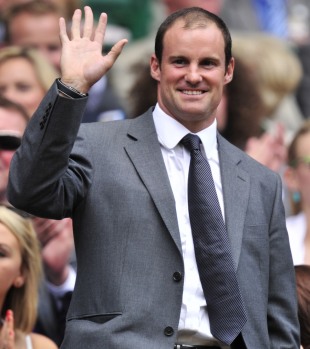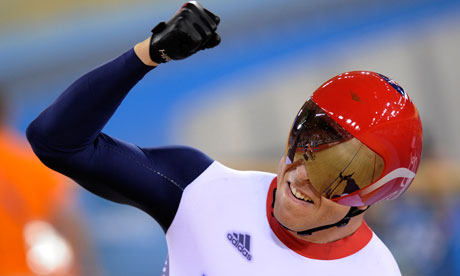Sambit Bal in Cricinfo
Watching Test cricket live always makes me happy, and Lord's, where affection for Test cricket wafts through like a gentle fragrance, is always a treat. But though the cricket has been thoroughly absorbing, it has been hard to shake off a sense of sadness. The value of cricket diminishes when the best players are not on stage, and though England can win without Kevin Pietersen, cricket is undoubtedly poorer without him.
Poignantly, Jonny Bairstow, the man who took Pietersen's place in the team, provided the most compelling individual story of the match, passing a searing examination that tested not only his skills but also his character. As he battled though, fighting nerves, and a hostile reception from two of the quickest bowlers in the world, and his innings grew, what was on some people's minds became almost audible: Good riddance, KP.
Of course, it is never as simple as that. Life without Pietersen might be easier, but can it be better? Or can it even be as good? The last week was an extraordinary one for English cricket, but that is the question the administrators and selectors must ponder as they contemplate the future beyond this series. Pietersen polarises opinion, but there are no blacks and whites in this case: the challenge is to find the right shade of grey.
Unity and stability are two words that have been used a lot in the last few days to justify Pietersen's removal for the deciding Test of the series. The truth is that all success stories create their own buzzwords, and all buzzwords are somewhat exaggerated. England became the No. 1 Test team mainly because they managed to put together a bowling attack that was perfect in their conditions, and because their batsmen prospered not only at home but also in Australia.
Unity and stability weren't of much use when their technique fell to pieces on turners in the subcontinent, and it was only a masterly innings from Pietersen that helped them draw level against Sri Lanka. Every team must aspire to having a healthy dressing room, for it can create an environment for achieving and savouring success in, but skills are much the greater pre-requisite. Success can be achieved without unity and stability but rarely without skills. Occasionally a team might punch above its weight with perseverance and spirit, as New Zealand have sometimes done, but rarely does a team achieve sustained excellence, let alone greatness, with those qualities alone.
I had the opportunity to have a long chat with Michael Holding, who rarely equivocates, last week, and without going into details it can be recorded that the dressing rooms of the great West Indian teams of the '70s and 80's were far from being oases of harmony. "We did," Holding said, "what was needed to win Test matches." Everyone knows those were teams that burst with greatness.
"Australianism" became the catchphrase for success when Australian teams built their aura of invincibility, but behind their very public mateyness was a team of strong individuals who didn't pretend to be friends once they stepped off the field. Shane Warne was quick to sympathise with Pietersen because he lived through his differences with his team-mates - and much more publicly, with his coach.
As long as Australia's reign lasted, the Australian method continued to be regarded as the template for breeding and sustaining excellence. The Australian system was hailed for creating tough, battle-ready cricketers, and the egalitarianism of Australian society was credited for instilling in them confidence and a reluctance to defer to those who ought to have been regarded as superior. And for years, as England's cricket team wallowed in misery, the English system was condemned as wretched and outdated.
But back-to-back Ashes defeats prompted the now-famous Argus review, which found that not all was well with the system. In fact, some of the recommendations mirrored those of the Schofield report, commissioned by the England board in 2007.
The point is that success creates its own stories, and over-analysing success can give birth to theories that somewhat obscure the simplest truths. Of course, individuals should never be greater than the team, but by the same measure it should never be forgotten that individuals make the team. It is true that a great player alone cannot make a great team, but the bigger truth is that there has never been a great team without great players.
The trouble with great players is that they often happen to be difficult characters. Some are narcissists, with an exaggerated sense of self-importance and entitlement. They can be highly strung and intense. Their single-minded drive towards excellence can make them insular and selfish. Because the game comes easy to many of them, they may be truant at practice. And because the money tends to chase them, they may be led to believe that they deserve even more of it than they get. They can present as much of a challenge to their own team off the field as they do to their opponents on it.
Good teams find ways to manage them. It starts with the recognition that special players often need special care, even if that means bending the rules, for at their best they can provide something so powerful and so breathtaking that it can transcend the team. A lot has been said about Pietersen's ego, but it is the need for that ego that powers him: it drives him to impose himself on a situation rather than submit to it; it allows him create his own reality-distortion field to bludgeon a hundred when lesser players would have fought for mere survival.
| Good teams recognise that special players often need special care, even if that means bending the rules, for at their best they can provide something so powerful and so breathtaking that it can transcend the team | |||
In his last five Tests he has twice done what none of his team-mates would have had the daring, imagination and skill to even attempt. His hundred in Colombo came on the back of a spirit-destroying run of defeats and allowed England to return from Sri Lanka with their dignity salvaged. And without his hundred at Headingley, England would perhaps have come to Lord's with nothing to play for apart from pride.
Of course the Pietersen issue is complex. From the beginning, his relationship with the England national team has been based on mutual, but uneasy, convenience. The team has tolerated him, the fans have accepted him grudgingly, and the media has been ambivalent. Though he has turned more matches for England than Andrew Flintoff - whose folk-hero status was earned through only a handful of performances - did, Pietersen has remained the outsider, the genuineness of his display of hyper-loyalty to the English always in doubt, his faults always scrutinised with extra rigour.
A full season of the IPL over Tests for England? What was he thinking?
No one has emerged with credit from the happenings of the last ten days. Pietersen has been petulant, and his bosses have come across as petty. Pietersen has felt let down by his employers for betraying his confidence, and Andrew Strauss has felt let down by the apparently derogatory text messages sent by Pietersen.
The media, a section of it at least, has played a curious role. On Sunday more details emerged about Pietersen's alleged text messages to the South African players, with a specific Afrikaner word becoming the subject of delighted dissection in the media box. When do private messages become worthy of publication? Perhaps when they serve public or national interest. In this case, it's hard to imagine what interest is served beyond the prurient.
Strauss, by all accounts a decent man with a calm disposition, has every right to be aggrieved. But imagine how many friends each of us would have lost and how many of our colleagues would have turned against us if every unkind word we uttered about them in moments of pique had reached their ears.
So as those charged with safeguarding the interest of English cricket ponder Pietersen's future in the national team, here's their case against him: He is greedy, not much of a team-man off the field, not liked much by his team-mates, has been indiscreet with his comments in public, perhaps doesn't like his captain much and been privately disrespectful of him, and has been seen drinking with the opposition. But is that enough to hang him?
Now let's examine the defence: There has never been any evidence of Pietersen giving anything less than his best on the field. He was crucified for not being able to resist the pull that brought him down at The Oval, but he played no differently at Headingley, where his innings was hailed as being among the best seen at the ground. He is not known to lead his young team-mates astray or to have plotted a rebellion in the ranks; and he has publicly apologised for some of his mistakes.
The whole squalid drama has produced no winners. And no conceivable good can emerge by dragging it further. Big players are often hard work and players don't need to be mates to fight for the common cause. We don't quite know what Stuart Broad, England's T20 captain thinks of Pietersen the man. But should that matter?
If Pietersen were never to play international cricket again, the loss would be greatest for the fans, to whom the administrators owe the biggest responsibility.




